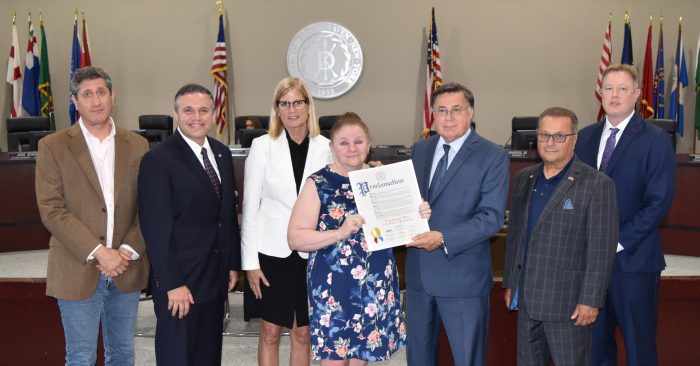A 27-year-old staple in Stony Brook Village Center will not be around once the autumn weather arrives.
On July 29, the owners of Pentimento Restaurant posted to their Facebook page that they are unable to extend the term of their lease. The business, which added a small market to its restaurant during the pandemic, is set to close its doors Sept. 30.
“We thank our loyal patrons and our wonderful staff for all the support they have given us over the past 27 years,” the Facebook post stated.
Owner Dennis Young and restaurant manager Lisa Cusumano said in a phone interview they were saddened by the decision made by Eagle Realty Holdings and said despite suggestions to relocate and even considering it at first in their Facebook post, overall, it doesn’t make sense.
“A lot of people have called us and said you could move here, or we could have this spot or that spot but Pentimento belongs in the village,” Cusumano said, adding that Young invested a good amount of money into the business nine years ago when he renovated the place.
Young echoed the sentiment.
“We thought about relocating and looked at some places, but I think Pentimento belongs where it is,” the owner said. “It’s not going to be Pentimento otherwise.”
Young said he was supposed to request an extension of the lease, which expires at the end of September, last year. He said while trying to keep the restaurant afloat during the pandemic, renewing slipped his mind. Both Young and Cusumano said they didn’t receive any reminder from the landlord to notify them about their intent to extend the lease.
“We weren’t thinking about [the lease] because we were just trying to survive, to stay safe and out of the hospital and to help the community,” Cusumano said. “We didn’t even know there would be a restaurant. Restaurants were closing left and right.”
According to Gloria Rocchio, president of Eagle Realty Holdings, tenants “must notify the landlord in writing of their intention to exercise the option to extend the lease term 365 days before the expiration of the existing lease.”
While Young is thinking about retiring in the near future, he said friends were interested in buying the business and keeping Pentimento as it is. They also planned to keep Young and Cusumano employed with them. However, their offer was denied by the landlord, according to Young.
Rocchio said that nothing is final yet due to a holding process and all other interested candidates needing to be interviewed to find the best tenant.
“The whole thing of other people buying it would be to keep the legacy and to keep Pentimento for the community, because we love the community and we know that the community depends on us,” Cusumano said.
Rocchio said in a statement on behalf of the realty company’s board of trustees that in addition to not receiving notice about Young’s intention to renew the lease, the tenant failed “to comply with the requirement to maintain the septic system” which is described in the lease.
Young said he couldn’t comment much on the septic system.
“There is a problem,” he said. “We have had extremely high costs to maintain the cesspool system, and it’s been a problem that’s not been resolved.”
Cusumano said they have maintained the property properly the whole time they have occupied the building.
“Over two years ago the tenant advised the landlord of their intention to sell the business and retire,” Rocchio said in the statement. “Recently the tenant informed the landlord they had a potential buyer and wanted an extension of the lease. The tenant asked for a much longer lease extension than is indicated in the present option to renew. The septic system issue must be resolved before a lease extension can even be discussed. The existing tenant to our knowledge has no intention to stay. So, we told the existing tenant we would interview their buyer and other candidates. That’s what was done. This is the present status.”
In response to Pentimento’s announcement that the restaurant is closing, restaurant patrons took to social media to express their dismay and showed support for the business.
Young and Cusumano said they have been overwhelmed by the response. While critics have posted on the restaurant’s Facebook accounts criticism of the landlord, the owners have only used their social media postings to inform the community of the closing and encourage customers to use gift cards previously purchased.
“Dennis and I are completely overwhelmed by the community support,” Cusumano said. “We had no idea that that many people would reach out and try to save this restaurant. It’s just unbelievable.”





















